The training, facilitated by Africa Centre for People Institutions and Society, brought together 25 representatives of the coalition from regulatory bodies, media associations, peace-building organisations, fact-checking organisations, tech associations/networks, and academia in Kenya.
During the workshop, Victor Bwire, Director of Media Training and Development at Media Council of Kenya, delivered a key note underscoring the important need to mainstream media and information literacy competencies in actions at national and county levels. Stressing that regulatory bodies cannot police people’s media consumption, he called on the coalition to synergise and focus efforts in mainstreaming media and information literacy in education and capacity building for self-regulation. This should include encouraging responsible usage of media content in both formal and informal settings.
He further indicated that UNESCO had supported the Council in drafting the National Media and Information Literacy policy for Kenya. The draft policy is now being reviewed, and is pending submission to Parliament in Kenya.
John Okande, Programme Officer, UNESCO, highlighted milestones that had been achieved in promoting of Media and Information Literacy competencies in Kenya. He emphasised the need for stakeholders within the coalition to mainstream and promote related competencies in digital peace-building to address harmful content, especially online disinformation and hate speech in Kenya.
Olive Metet, Deputy Director Corporate Communications at National Cohesion and Integration Commission (NCIC), stated that there has been a significant shift on how hate speech and disinformation is spread on digital platforms. He encouraged cooperation with the established coalition to formulate strategies to address this new challenge.
“There is a need for deliberate and strategic promotion of gender-responsive programming in peace building initiatives, particularly to address harmful content online in Kenya. This is key to building responsible, self-aware and peaceful societies.”
— Patience Nyange, Executive Director at Association of Media Women in Kenya (AMWIK)
Dr. Charles Nyambuga, Senior Lecturer of Communication and Media at Maseno University, reminded the audience that democracy thrives on accurate information. Educating people to disseminate factual information is therefore crucial to safeguarding democracy, and should begin with mainstreaming media and information literacy (MIL) within teaching curriculum and practices in universities.
Participants were urged to be ambassadors in Media and Information Literacy (MIL) and to incorporate the gained competencies from the training into their daily activities and lives. Topics covered included: Key MIL competencies, open sourced tools for identifying and analysing online hate speech and disinformation, Kenya’s policy and regulatory landscape governing the digital space, modern training techniques and methodologies, effective learner engagement strategies among others.
“I’m thrilled to inform members that we have expanded the coalition with three new memberships: Paradigm Initiative (PIN), National Council of Persons with Disabilities (NCPWD), and the National Steering Committee on Peace Building and Conflict Management. These new additions come to bolster the coalition’s efforts and enhance its ability to achieve its set goals.”
— John Okande, Programme Officer, UNESCO
The workshop was organized under UNESCO EU-funded project Social Media 4 Peace in Kenya. The initiative seeks to strengthen the resilience of societies to potentially harmful content spread online, in particular hate speech inciting violence while protecting freedom of expression and enhancing the promotion of peace through digital technologies, notably social media.
 Afrikaans
Afrikaans Shqip
Shqip አማርኛ
አማርኛ العربية
العربية Հայերեն
Հայերեն Azərbaycan dili
Azərbaycan dili Euskara
Euskara Беларуская мова
Беларуская мова বাংলা
বাংলা Bosanski
Bosanski Български
Български Català
Català Cebuano
Cebuano Chichewa
Chichewa 简体中文
简体中文 繁體中文
繁體中文 Corsu
Corsu Hrvatski
Hrvatski Čeština
Čeština Dansk
Dansk Nederlands
Nederlands English
English Esperanto
Esperanto Eesti
Eesti Filipino
Filipino Suomi
Suomi Français
Français Frysk
Frysk Galego
Galego ქართული
ქართული Deutsch
Deutsch Ελληνικά
Ελληνικά ગુજરાતી
ગુજરાતી Kreyol ayisyen
Kreyol ayisyen Harshen Hausa
Harshen Hausa Ōlelo Hawaiʻi
Ōlelo Hawaiʻi עִבְרִית
עִבְרִית हिन्दी
हिन्दी Hmong
Hmong Magyar
Magyar Íslenska
Íslenska Igbo
Igbo Bahasa Indonesia
Bahasa Indonesia Gaeilge
Gaeilge Italiano
Italiano 日本語
日本語 Basa Jawa
Basa Jawa ಕನ್ನಡ
ಕನ್ನಡ Қазақ тілі
Қазақ тілі ភាសាខ្មែរ
ភាសាខ្មែរ 한국어
한국어 كوردی
كوردی Кыргызча
Кыргызча ພາສາລາວ
ພາສາລາວ Latin
Latin Latviešu valoda
Latviešu valoda Lietuvių kalba
Lietuvių kalba Lëtzebuergesch
Lëtzebuergesch Македонски јазик
Македонски јазик Malagasy
Malagasy Bahasa Melayu
Bahasa Melayu മലയാളം
മലയാളം Maltese
Maltese Te Reo Māori
Te Reo Māori मराठी
मराठी Монгол
Монгол ဗမာစာ
ဗမာစာ नेपाली
नेपाली Norsk bokmål
Norsk bokmål پښتو
پښتو فارسی
فارسی Polski
Polski Português
Português ਪੰਜਾਬੀ
ਪੰਜਾਬੀ Română
Română Русский
Русский Samoan
Samoan Gàidhlig
Gàidhlig Српски језик
Српски језик Sesotho
Sesotho Shona
Shona سنڌي
سنڌي සිංහල
සිංහල Slovenčina
Slovenčina Slovenščina
Slovenščina Afsoomaali
Afsoomaali Español
Español Basa Sunda
Basa Sunda Kiswahili
Kiswahili Svenska
Svenska Тоҷикӣ
Тоҷикӣ தமிழ்
தமிழ் తెలుగు
తెలుగు ไทย
ไทย Türkçe
Türkçe Українська
Українська اردو
اردو O‘zbekcha
O‘zbekcha Tiếng Việt
Tiếng Việt Cymraeg
Cymraeg isiXhosa
isiXhosa יידיש
יידיש Yorùbá
Yorùbá Zulu
Zulu


